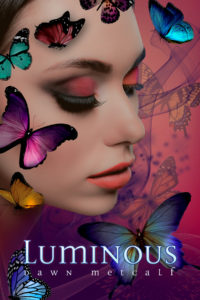Sometimes I plan my posts in advance and others I pull out of a list of possible topics I've scribbled down for later use. I'd originally planned to write about heroism and had forgotten the date, then balked when I realized it was 9-11. The word "hero" is no longer something I can toss around lightly, much the same way as having children made it almost impossible for me to write blithely about putting pregnant women or infants in danger--the fiction no longer meant the same thing as it did. (Or did it? These things always had weight and I'd naively ignored it.) Despite everything, I want to still talk about the idea of heroism and villainy because now, more than ever, it resonates as a force in writing and in life.
Villains rarely see themselves as villains. Unless you're of the "Bwahahaha!" variety or sport secret identities like Vordak or Dr. Horrible, a person usually doesn't seek to do evil for evil's sake, most often it's evil actions in the name of a "good" or "righteous" cause...at least to that person. Similarly, true heroes don't see themselves as heroes out to do something heroic unless, again, they're of the "I'll save you!" variety or have secret identities like Metro Man or Mr. Incredible. Arguably, the best characters (and people) are those who do what they've always done despite facing unusual and often extreme circumstances; their ordinary, everyday inclinations are seen as extraordinary because in the worst of times, rarely do we get to see people sticking to their principles. This is what makes true heroes, tragic heroes, willing sacrifices, and the most despicable of villains. It was what allowed Rosa Parks insist on keeping her seat on the bus and what allowed Adolf Hitler to conduct mass genocide while being a husband and father. It is baffling, but most of true life is.
I once heard that to be "extraordinary" was to be "extra-ordinary", meaning that by being yourself and who you've always been despite how your circumstances might change and pressure you to do otherwise, you will stand out because you are being more like yourself instead of more like what other people expect you to be.
Dizzying, isn't it?
I think of books like THE CHOCOLATE WAR or THE WAVE, THE LORD OF THE FLIES or LITTLE BROTHER where it was easy to give in to what is happening and what happens when you do or don't. I think a big part of the dystopian trend today is the want to rebel against complacency that is a lazy sort of evil, evil that happens because "that's just how things are" mentality rules on the backs of those in lesser positions of power and that rank and passion are so completely teen--it taps into that want to be extraordinary by standing for our principles instead of being one of the crowd. Kick it up to 10 and you get books like THE HUNGER GAMES or UGLIES, where even "ordinary" is "extraordinary" to the reader and the main character is thus doubly-so.
But then again, that's fiction.
In the wake of 9-11, I think of this and am convinced that there were no firefighters or police or emergency personnel who thought, "I am going to be a hero if I do this." Instead, I believe these were men and women doing their job to the best of their abilities, selflessly putting themselves in harm's way in order to keep others safe and alive, just as they always had done and acted during the rest of their lives and careers, despite the fact that the Twin Towers were falling. I don't think the pilots of those awful planes thought, "I am going to be a villain if I do this." I believe they thought that their actions were a statement for a cause that they believed in and the benefits--whatever they imagined that they would be--were worth the cost in their minds. It's impossible to commit such atrocities without buy-in, envisioning that this must be for some Greater (it's hard to even type the word) "Good". No one thinks of themselves as evil. No one knows how history will remember them. In those moments, these people were the essence of who they always claimed to be and that moment of their lives becomes frozen in time. It is we, those remaining, who are left to interpret what is ordinary and what is extraordinary.
Everyone would like to be the hero of their own story. Even (or especially) the villains. But it's important to remember that it is the after that determines the "Happily Ever After", the Days of Remembrance, the anniversaries, and the warnings passed down from generation to generation, revering the true heroes and reminding us to recognize villainy, from discrimination to bullying, from acquiescence to accomplice, both in fiction and in life.
Never forget.

